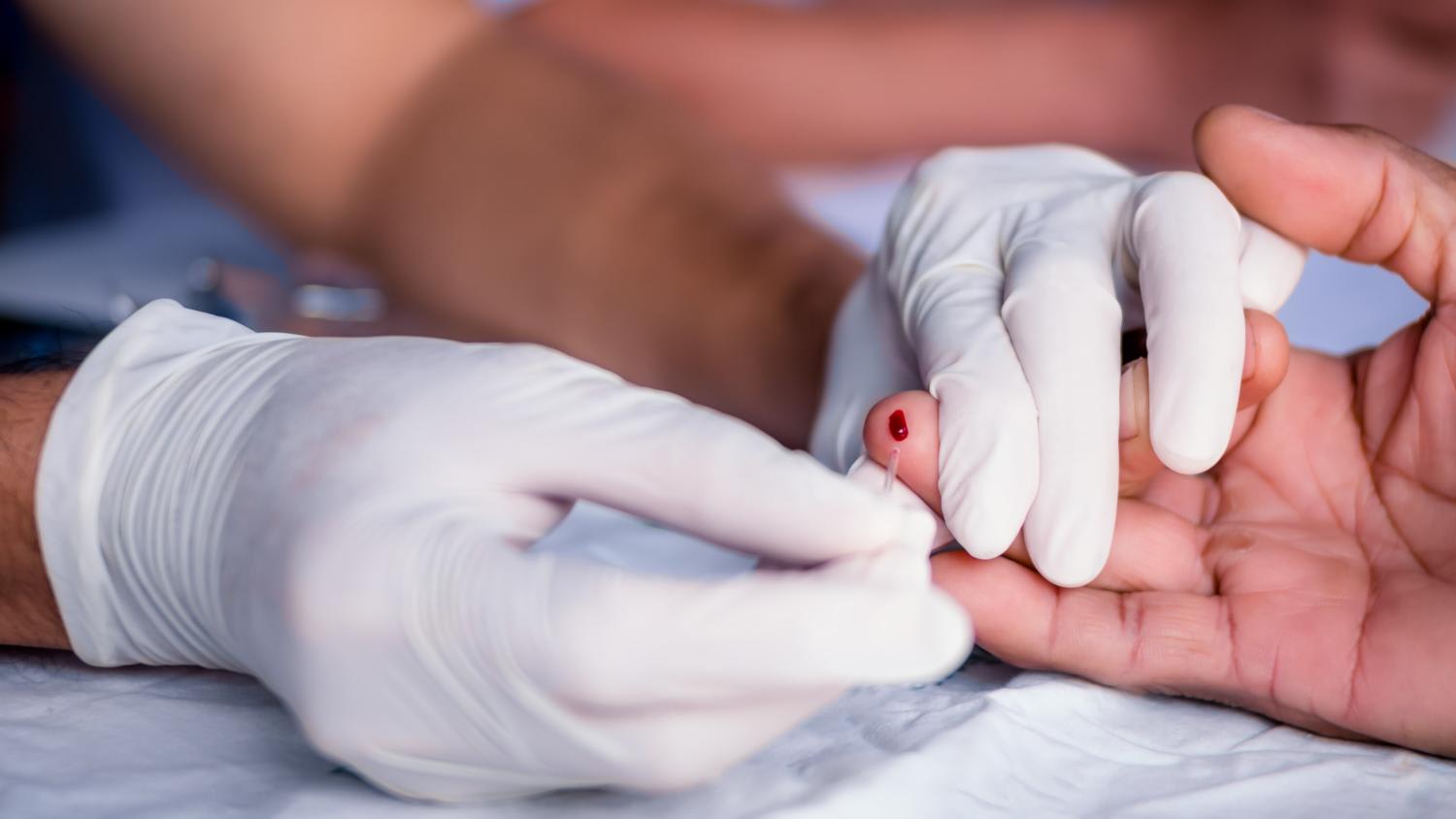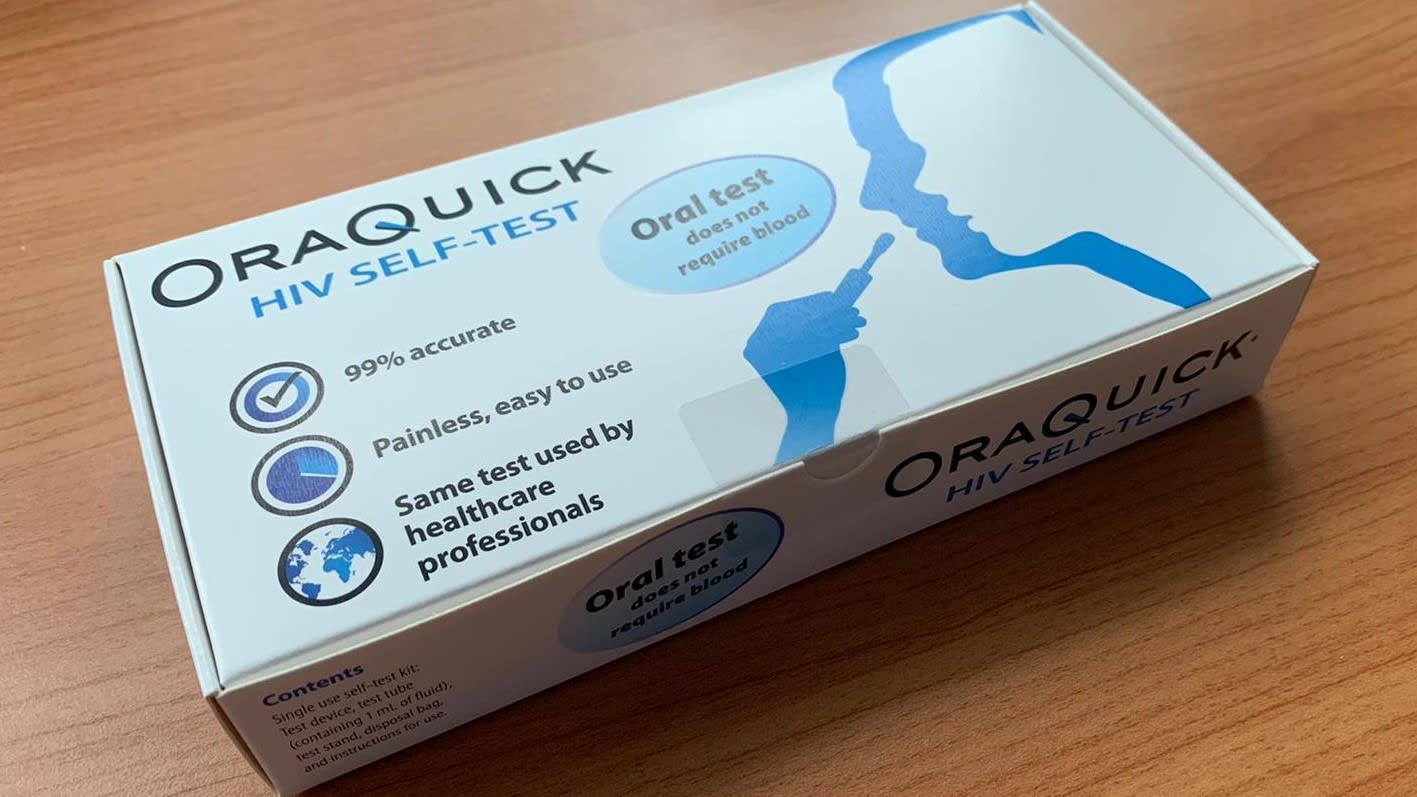When it comes to HIV, getting tested is the only way to be sure
With HIV self-test kits available under a new pilot programme, it is now easier than ever to get screened. An infectious diseases expert from NCID takes us through the process, and why there are no downsides to knowing one’s HIV status.

Associate Professor Sophia Archuleta, director of the National HIV Programme at the National Centre of Infectious Diseases (NCID); head and senior consultant, Division of Infectious Diseases, Department of Medicine, National University Hospital, believes that everyone should know their HIV status. Photo: NCID
Many people with HIV infection are not aware that they have the condition. Local figures are testament to this sobering reality. In 2021, 62 per cent of newly-diagnosed patients had late-stage HIV infection, according to Ministry of Health.
Having encountered “too many” individuals with HIV infection who are hesitant to get tested, Associate Professor Sophia Archuleta, director of the National HIV Programme at the National Centre of Infectious Diseases (NCID); head and senior consultant, Division of Infectious Diseases, Department of Medicine, National University Hospital, said: “Some patients only find out their status after they have developed AIDS, a process that may take about 10 years.”
AIDS is the most advanced stage of HIV, where one’s immune system is severely compromised and prone to a spectrum of infections and illnesses. Given that there are no obvious symptoms in the early stages of an HIV infection, it is easy for one to be lulled into a false sense of security.
GETTING TESTED FOR HIV

Getting tested is the only way to know your HIV status. “It should be like having your blood pressure or cholesterol checked,” Assoc Prof Archuleta said. It is recommended that anyone who is sexually active , or everyone above 21 to get tested at least once in their lifetime, regardless of their risk factors. For people who are at a higher risk of getting HIV – such as those who have had unprotected sex, have more than one sexual partner, or engage in casual or commercial sex – more frequent testing once every three to six months is recommended.
However, voluntary testing for HIV remains low in Singapore. According to a local study, just 4.9 per cent of patients who were offered voluntary HIV screening in a public hospital agreed to testing. The paper also found that the most common reason for opting out of testing was due to the belief of one’s low risk of getting HIV.
“From the individual’s perspective, there’s still a lot of stigma associated with the disease. There is also low knowledge about HIV infection and transmission. Although some people may be in the high-risk category, their self-perception is that they are at low risk,” Assoc Prof Archuleta shared.
Being aware of one’s HIV status empowers individuals to make informed decisions, and to take the necessary protective steps. “The idea is to detect the infection early and take appropriate action,” Assoc Prof Archuleta said. “When you go for testing, it’s also a good time to start a conversation with your regular healthcare provider about sexual health and other HIV preventive measures, such as the ‘ABCD approach’ that encompasses abstinence from casual sex; being faithful; correct and consistent condom usage; and early detection. In addition, the use of HIV pre-exposure prophylaxis is highly effective when used as part of a comprehensive HIV prevention strategy.”
EARLY DETECTION MATTERS
With advances in HIV management, people living with HIV (PLHIV) now have better health outcomes.
Treatment involves the use of combination antiretroviral therapy, which combines two or three antiretroviral medicines, to slow the rate at which the virus multiplies in the body. “The treatment is highly effective in decreasing the amount of virus in the blood to undetectable levels. Current treatment regimens can do that within one to three months of therapy for 99 per cent of people,” said Assoc Prof Archuleta.
She added: “If treatment is administered early enough in the natural course of HIV infection, we can control the viral load and get it to an undetectable level before any damage is done to the immune system, so PLHIVs can live a life no different from anyone else.”
While someone with late-stage HIV can still achieve the same results with antivirals, Assoc Prof Archuleta cautioned that the patient’s immune system would have already been compromised: “Damage to the immune system is reversible, so eventually the immune cells do recover with treatment. However, there’s a period in the early stage of treatment where other opportunistic infections – including malignancies or cancers – may develop.”
HIV SELF-TEST KITS NOW AVAILABLE

HIV tests work by picking up the presence of antigens or antibodies, Assoc Prof Archuleta said. “Antigens are components of the virus that can be detected in the bloodstream while antibodies are proteins that the body produces to fight HIV infection.”
Most GP clinics, polyclinics and hospitals offer routine HIV screening services, with some offering rapid HIV tests that produce results in about 20 minutes. “All HIV testing is private and confidential, between you and your doctor, except where required by law,” Assoc Prof Archuleta said.
Anonymous HIV testing is available – no identifiable information such as names and IC numbers are recorded. Instead, an unlinked number is assigned to the person taking the test. Currently, there are 10 clinics that offer anonymous testing.
A new option is now available to make it even easier for those aged 21 and above to get tested. Under the HIV self-testing pilot programme, HIV self-test kits that cost between S$20 and S$32 can now be purchased from DSC Clinic and Action for AIDS (AfA), and administered in the privacy of one’s home.
Assoc Prof Archuleta said: “We’ve all become familiar with COVID-19 antigen rapid testing at home. This is similar – you swab the inside of your mouth and get the results in 20 minutes.”
WHAT NEXT, AFTER A POSITIVE OR NEGATIVE TEST RESULT
Individuals who test positive on HIV self-test kits may return to where they purchased the kit – either at the DSC Clinic or AfA – for confirmatory testing. Those who test positive will be referred to an HIV specialist to initiate treatment as soon as possible, and to manage any potential or existing complications. “The goal is to get the patient to an undetectable viral load, keep them healthy as individuals and decrease their chance of passing on the HIV infection,” Assoc Prof Archuleta said.
If the test is negative, the patient will be assessed to see if he or she needs a repeat HIV test.
Following an HIV infection, it can take up to three months for antibodies and antigens to develop to levels that can be detected by rapid test kits – this period is called the “window period”, Assoc Prof Archuleta said.
She added: “If an individual has had a recent exposure to HIV, it is possible that the test will show up negative. That is why we recommend more frequent testing every three to six months for persons at greater risk.”
Assoc Prof Archuleta further said that there is “no downside to HIV testing”. “Everyone should know their status. Even if you’re 99.99 per cent sure you don’t have HIV infection, get tested to be 100 per cent sure. If you do find out you are HIV-positive, you can still get control of your health by seeking treatment,” she shared.
The Health Promotion Board and the National Centre for Infectious Diseases are united in the common goal to end HIV. Everyone should know their HIV status, and get tested for HIV at least once.















